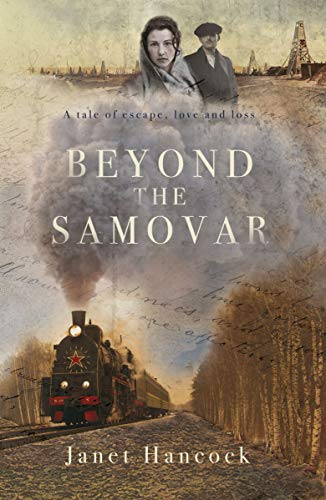Beyond the Samovar
In 1919, Peter and Olivia (Livvy) are a loving young British couple with a baby who met while working in Russia. They now live in Baku, Azerbaijan, a country which has only just achieved what would be a brief period of independence, but is still troubled because of the volatile political situation in which Turks, Armenians, and Russians (both White and Red) are constantly fighting. Baku is a dangerous place to live and work, so Peter and Livvy make the sad decision to leave good friends and return to England. Livvy suffers from extreme seasickness, so Peter decides on the more dangerous and cold northern route, to board a ship in British-controlled Murmansk rather than the longer sea-route via the Black Sea and the Mediterranean. Not only is it dangerous in revolutionary Russia but, in the end, tragic.
Arriving in England with her son, Livvy has to face her unknown in-laws who are not only ignorant of the fighting in Western Europe from 1914 to 1918, but also don’t have a clue about the current political situation in Russia and what it means to the people caught up in it. Keeping her worries to herself, Livvy also struggles to make sense of the England she has left behind. Slowly, Livvy finds resolution where she least expected it.
I thoroughly enjoyed this novel, which fell into two equally fascinating sections. The first is the couple’s journey north from Baku on crowded trains, hiding their nationality in case of reprisals, fearing for their infant, bribing officials, cold, hungry and thirsty, finding kindness from some strangers and hostility from others. I have never yet read a novel which so brilliantly portrayed England in the years following the Armistice. Its conclusion offered hope and happiness. Highly recommended.










